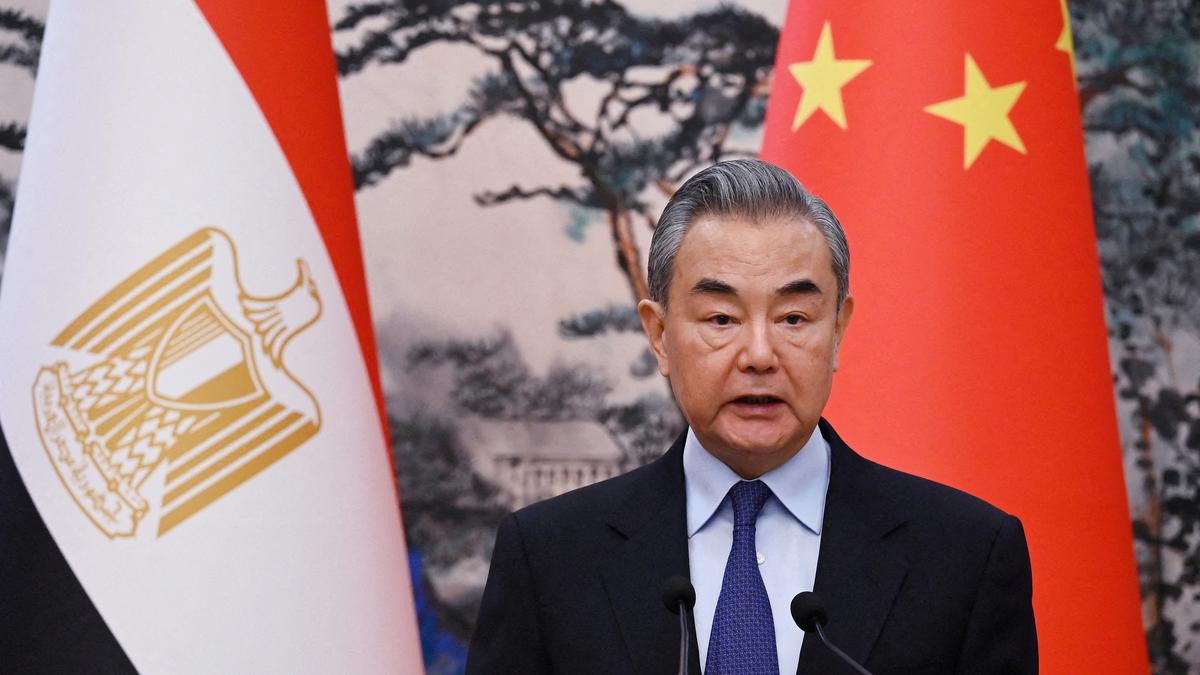Bangladesh Seeks Concessions from China on Belt and Road Loans: A Look at the Details
In a significant move, Bangladesh has officially requested China to offer more favorable terms on its Belt and Road Initiative (BRI) loans. This plea comes amidst growing concerns about debt sustainability and highlights the complexities of navigating large-scale infrastructure projects funded by foreign powers. The implications extend beyond simply securing financial concessions; this situation points toward a broader recalibration in the relationship between Dhaka and Beijing.
China's Growing Influence and Bangladesh's Financial Needs
China's involvement in Bangladesh's infrastructure development under the BRI has been substantial. Mega-projects, such as the Mongla Port upgrade and the Dasherkandi Sewage Treatment Plant, are prime examples. These projects have indeed spurred economic growth but, simultaneously, incurred a considerable debt burden. This leads us to explore the critical details of the recent request to modify existing financial obligations.
The specifics of Bangladesh's request
Bangladesh’s request is multifaceted: the country wants to see interest rates reduced from 2-3% to a mere 1%. Additionally, Dhaka is seeking a complete waiver of commitment fees—costs typically associated with loan disbursement—and a lengthening of the repayment period from 20 to 30 years for both the Preferential Buyer’s Credit (PBC) and the Government Concessional Loan (GCL). These amendments would considerably ease the long-term financial strain.
Beyond the immediate financial ask
This is more than simply negotiating better loan terms; Bangladesh is engaging in a careful recalibration of its economic priorities. Its request underlines a broader narrative – the balancing act between leveraging significant financial resources and safeguarding its long-term debt sustainability. A long-term perspective becomes critical.
Bilateral Relations: A Complex Dynamic
Bangladesh's relationship with China has grown complex, characterized by growing interdependence and underlying diplomatic sensitivity. China’s expanding footprint under the BRI has understandably introduced both opportunity and apprehension into the political arena in Bangladesh.
Balancing geopolitical considerations
Bangladesh has been careful to ensure that the renegotiation doesn't affect its existing partnerships, showing the nation's attempts to navigate this challenging economic and diplomatic reality. Their handling of this scenario displays sophisticated international relations, requiring deft management.
Securing a mutually beneficial relationship
China, in turn, is also trying to maintain a cordial diplomatic rapport. By designating hospitals for Bangladeshi citizens, and exhibiting willingness for collaborations in diverse fields like railway, education, and renewable energy, it indicates China's commitment to the partnership. This points to mutual benefit as a goal that continues to frame this evolving partnership.
The Hydrological Information Sharing Agreement and Beyond
Amidst these economic and financial discussions, the agreement to share hydrological data between China and Bangladesh regarding the Tsangpo-Brahmaputra-Jamuna river system carries great significance. This underscores the interconnectedness of shared resources and sets a path toward collaborative water resource management between these two nations, indicating more than financial matters at stake. It highlights that both nations recognize that there is the mutual need for long-term cooperation on an issue of shared natural resource utilization.
Implications of the data sharing deal
This agreement represents more than just a data-sharing deal; it opens pathways towards cooperation on critical aspects like flood management, environmental protection, and sustainable energy harnessing along the river. This kind of environmental collaboration might end up becoming as pivotal as the debt discussion.
Implications of the hydro data-sharing deal for downstream countries such as India
The shared hydrological information impacts other nations sharing the Brahmaputra River, like India. How India interprets this level of cooperation might introduce further complexities in regional relations, underlining the international ripple effect that this data sharing agreement may trigger.
Looking Ahead: Navigating Challenges and Opportunities
The current negotiations illustrate that both countries will continue to work to find common ground between securing mutual advantages. Bangladesh seeks financial flexibility within the BRI framework; China aims to retain its standing as a pivotal partner for regional development while still managing risk in lending.
The significance of the 50th anniversary celebrations
The impending 50th-anniversary celebrations of the Bangladesh-China relationship emphasize the longstanding diplomatic connection between the nations. This anniversary reinforces the backdrop for resolving conflicts and deepening collaborations while also underscoring that these issues must be solved diplomatically.
Long term considerations in Bangladesh - China cooperation
Both nations acknowledge the long road ahead, signifying a sustained effort to balance infrastructure growth with sustainable finance and careful risk management in this dynamic geopolitical region.
Take Away Points:
- Bangladesh's loan request to China reflects a delicate balance between leveraging BRI opportunities and ensuring its long-term financial health.
- This case demonstrates the intricate relationship dynamics between nations collaborating on large infrastructure projects.
- The data-sharing agreement regarding the Tsangpo-Brahmaputra river holds environmental and geopolitical significance beyond mere data exchange.
- The upcoming 50th anniversary celebrations will provide a platform for both nations to review the past and map out their continued partnership.




